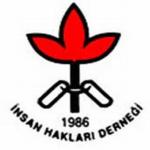REPORT by Thomas Hammarberg Commissioner for Human Rights of the Council of Europe
Executive Summary
The present Report focuses on the following major issues:
1. Overview of minorities in Turkey in relation to European and international instruments: Whilst the Commissioner appreciated the positive signs of good will shown by the Turkish authorities for resolving a number of issues concerning human rights of minority groups, he remains concerned by the authorities' refusal to recognize the existence of any other minorities except for the tripartite non-Muslim one (Armenians, Greeks and Jews), following an over-restrictive interpretation of the 1923 Lausanne Peace Treaty. The Commissioner recommends that the authorities create an effective framework of consultations that would ensure a real dialogue with all minority groups in the country and pursue reforms with a view to fully aligning law and practice with the Council of Europe human rights standards concerning minorities. The Commissioner recommends in particular the prompt establishment of an effective national human rights institution, the creation and implementation of a comprehensive anti-discrimination legislation and the ratification of Protocol N° 12 to the European Convention on Human Rights. Accession to the Framework Convention for the Protection of National Minorities and of the European Charter for Regional or Minority Languages is also highly recommended.
2. Minority languages and the right to freedom of expression: Despite certain efforts made in this area, the Commissioner remains very concerned at a number of persisting restrictions imposed upon education of minority members, including teaching and learning of their mother tongues. The Commissioner recommends the adoption of measures in order to enhance minority group members' education and teaching and learning of their mother tongues, a precondition of enjoyment by them of their freedom of expression. The Commissioner is concerned about the high number of the freedom of expression-related judgments against Turkey that have been delivered by the European Court of Human Rights and whose execution is supervised by the Committee of Ministers. He calls upon the authorities to take further measures in order to effectively incorporate the European Court of Human Rights' case law into domestic law and practice. This should include revision of certain provisions of the Criminal Code and of the anti-terrorism law mentioned in the Report, and of their application by prosecutors and courts. It is stressed that hate crimes in general, particularly those committed against persons who have exercised their right to freedom of expression, should be effectively investigated and those responsible should be promptly identified and punished, in line with the established case law of the European Court of Human Rights.
3. Minorities and the right to freedom of association: Recalling the particular importance of the freedom of association, which includes the creation and operation of political parties, for persons belonging to minorities, the Commissioner notes his serious concern about the current Turkish law and practice, especially about the proceedings that were initiated in the near past against two of the major political parties with a view to their dissolution. The Commissioner commends the determination shown by the Minister of Justice to carry on efforts to fully embed the Council of Europe human rights standards in national law and practice. He urges the authorities to follow up on and implement promptly the pertinent recommendations made notably by the Council of Europe Parliamentary Assembly and by the Venice Commission. (Source: Council of Europe.)
Click here to see part 2 of the summary.








